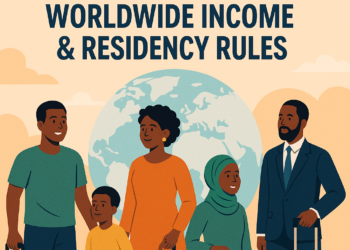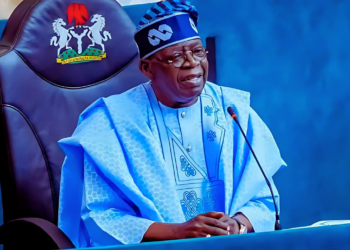In Johannesburg, South Africa, the BRICS group of developing and emerging economies convened, sparking a fresh wave of criticism against the US dollar as the dominant global reserve currency and medium of trade.
Questioning Dollar Dependence
Former Nigerian President Chief Olusegun Obasanjo raised a thought-provoking query about the necessity of the dollar in international transactions.
Obasanjo’s statement, “I want to buy from India. Why should I use dollars?”, resonated with the crowd, reflecting concerns about the dollar’s grip on global trade.
Nigeria, a major oil exporter, earns a significant portion of its revenue in dollars, but challenges arise due to the rising costs of imports and foreign exchange scarcity.
More Calls for Change
The sentiment against the dollar was not confined to Nigeria. Leaders from Brazil and Russia also expressed reservations about the dollar’s dominance and called for alternatives.
Russia’s Vladimir Putin stressed the ongoing process of de-dollarization in economic ties. He underscored that BRICS cooperation is built on principles of equality and partnership that resonate with the aspirations of the global majority.
Brazil’s Lula Da Silva echoed the sentiment, advocating for a reference unit of account in trade that would safeguard national currencies while fostering international commerce.
Escalating Factors
The escalating call to move away from the dollar was attributed to the United States’ imposition of sanctions on Russia, which included freezing central bank assets and blocking Russian banks from SWIFT, the global financial communication network.
This has sparked concerns among nations that falling out of favour with the West might lead to similar sanctions, creating a drive for financial independence.
Challenges Ahead
Despite the strong rhetoric, transitioning to an alternative global currency is complex and riddled with challenges.
Last month, the Chief Financial Officer of the New Development Bank (NDB), an institution established by BRICS, highlighted that creating an alternative currency is a medium to long-term endeavour, with many unresolved questions.
Looking Forward
As developing economies voice their reservations about the dollar’s dominance, the path toward a sustainable alternative currency remains uncertain.
The global shift away from the dollar requires strategic planning, collaboration, and the resolution of multifaceted issues. While the call for change gains momentum, crafting an equitable solution will undoubtedly be a significant undertaking for these economies seeking financial autonomy.












